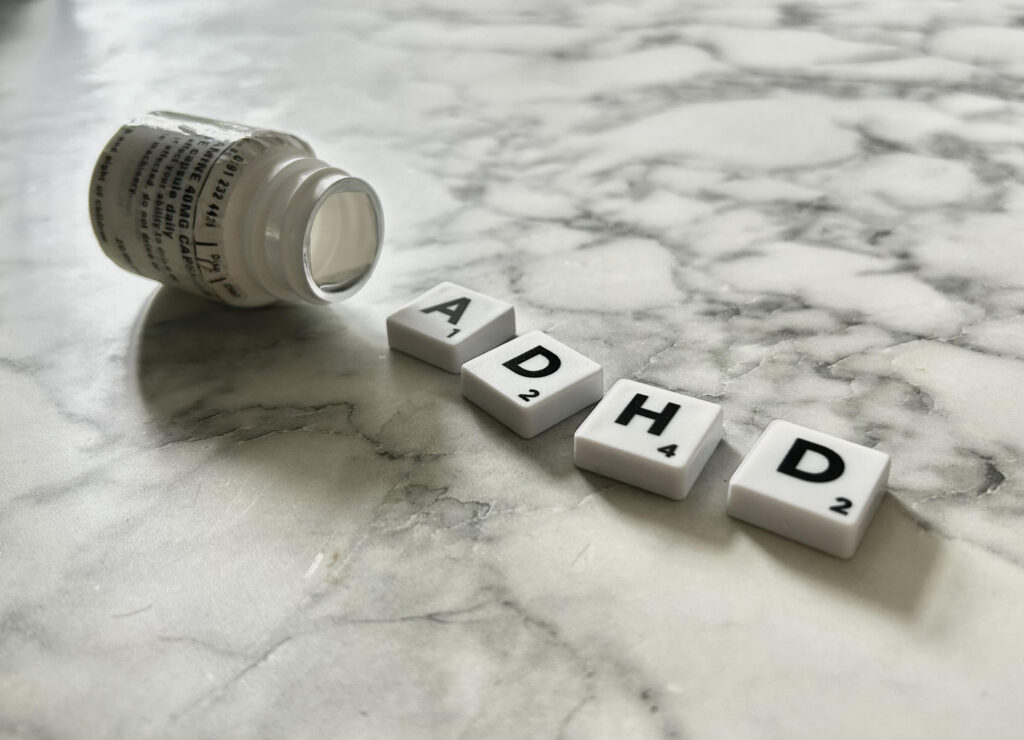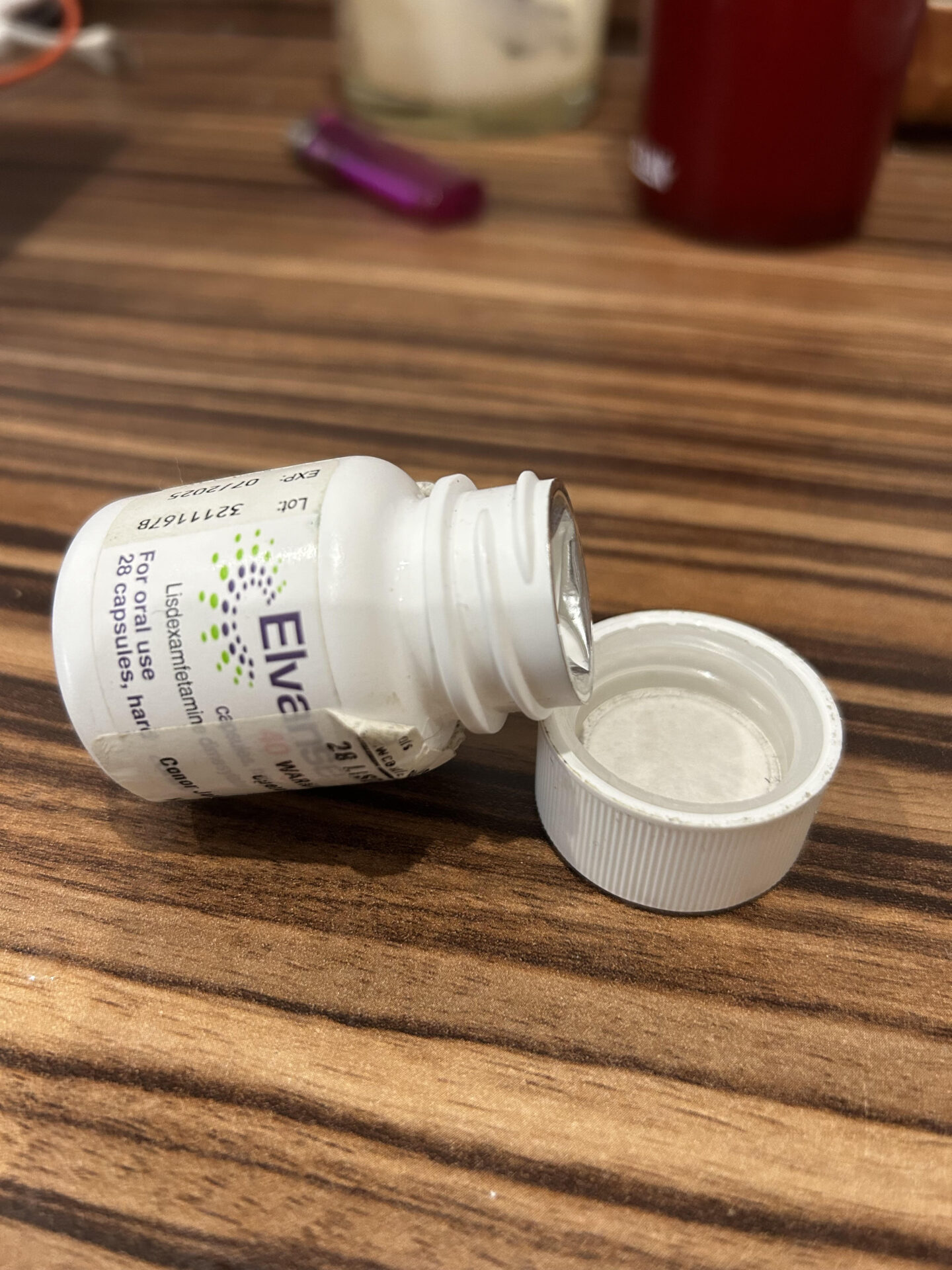
On the 27th of September 2023, the UK government announced that there were issues with ADHD medication supplies. Although predicted to have been fixed in December, many are still facing challenges to access needed medication.
What is ADHD?
Attention deficit hyperactivity disorder (ADHD) is a neurodevelopmental condition characterized by persistent patterns of inattention, impulsivity and hyperactivity that significantly impair functioning or development. ADHD currently affects approximately 4% of the UK population, with symptoms often beginning in childhood, but can persist into adulthood.
What are the symptoms?
The NHS categorizes ADHD into two types of behavioural problems, each with distinct symptoms: Inattentiveness, which includes difficulties in concentrating and focusing, and hyperactivity and impulsiveness.
Signs associated with inattentiveness in ADHD are:

- Forgetfulness or losing things
- Easily distracted or short attention span
- May make careless mistakes
- Inability to stick to tasks
- Difficulties with organization
- Impatience
Signs associated with hyperactivity and impulsiveness in ADHD are:
- Unable to sit still, particularly in calm or quiet environments
- Constantly needing to fidget or move
- Unable to concentrate on tasks
- Excessive talking or interrupting others in conversations
- Little or no sense of danger
- Overall restlessness
Individuals with ADHD can exhibit symptoms from both categories -hyperactivity and inattentiveness- but some may display symptoms from only one category.
Private psychiatrist and ADHD specialist Dr.Stefan Ivantu outlined that “ADHD isn’t a one-size-fits-all condition. It manifests as a spectrum of symptoms that can be different in severity and presentation.”
He further explained that over 60% of those diagnosed during adult life, may present with one or more associated conditions.
What causes ADHD?
The exact cause of Attention deficit hyperactivity disorder is not clear, however, a combination of factors are thought to play a role in the cause:
Genetics:
ADHD often tends to run in families, indicating that inheriting certain genes may be a significant factor in developing the condition.
With that said, the inheritance of ADHD is likely to be complex, as it is thought that it may not be simply related to a single genetic fault.
Brain structure and function:
Research has suggested that differences in the brain’s structure and function may be related to the cause of ADHD. Particularly when it comes to areas that are associated with attention, impulse control and executive functions. Studies have suggested that certain areas of the brain may be either smaller or larger than those who have ADHD.
ADHD is also thought to be linked to an imbalance of chemicals in the brain called neurotransmitters. Some neurotransmitters, such as dopamine, are important for regulating attention and behaviour.
How can ADHD be treated?

Standard treatments for treating ADHD involve therapy and/or medication taken to reduce the symptoms. These treatments can be taken together, however, there is no complete cure – treatments simply aim to help patients manage symptoms.
Some typical medications used to help treat ADHD include Methylphenidate, Lisdexamfetamine and Dexamphetamine. These medications often work by affecting neurotransmitters.
As of late, some people may not be able to currently access their medication due to a national shortage. Read more about it here
Those struggling with ADHD can also resort to counselling or support groups to offer emotional support and ways of managing their symptoms.
Bill Scott, the founder of an ADHD support group charity in the Northeast shared:
“The medications can keep the flow going but with all the work I’ve done in the communities… different people need different types of support. At support groups people are relating to each other, they can drop their barriers by talking about things they’ve never been able to talk about to anyone else.”
Why can’t some people access their medication?
The government has informed both the public and NHS that an ADHD medication shortage is due to an increase in global demand and manufacturing issues.
According to ADHD specialist and Pharmacist Salma Ali, supply problems arose due to the manufacturing company having to shut down its plant to relocate. She noted that “the transition was very problematic and caused supply disruptions.”
Alongside supply challenges, there has also been a large increase in demand, both for ADHD diagnosis and medication.
With there being an increased awareness about ADHD, patients began to reach out for diagnosis and support. This meant that although manufacturers had predicted an increase in demand for ADHD medication, “they had no way of predicting how significant that increase would be.”
But why is there this sudden increase in demand? Well, mental health nurse and director of Divergence UK, Andrew Jay, attributed this growth to external factors such as the COVID-19 pandemic and the role of ADHD representation through social media.
He explained “Lockdown made us all look internally, and when the pandemic hit and people were placed into lockdown, people were forced to just stop…People then had the time on their hands to explore themselves, and there was a ripple throughout social media with lots of videos appearing bringing awareness that you might have ADHD.”
In short, when it comes to understanding why the shortage is happening, there doesn’t seem to be just one answer. While supply and demand issues are significant factors, other external elements may also have had a contributing role.
Disclaimer:
The work presented here is part of a student project. While the information on this website has been verified to the best of our abilities, we cannot guarantee that there are no mistakes or errors.The material on this site is given for general information only and does not constitute professional advice. The views expressed through this site are those of the individual contributors and not those of the website owner. We are not responsible for the content of external sites.

Leave a Reply